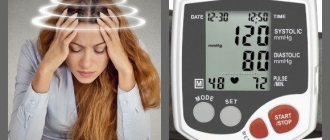In the life of every person, painful conditions periodically occur, which are accompanied by characteristic symptoms. You can often hear complaints that you feel dizzy and want to sleep. At first glance, these symptoms may seem quite innocent manifestations against the background of banal fatigue. However, everything is not so simple. Let's consider what influences the appearance of these signs.
What makes you feel dizzy and sleepy?
Many factors can cause dizziness and drowsiness. The reasons primarily lie in the insufficient supply of the cerebral cortex with nutrients and oxygen. At the same time, exhausted nerve cells experience severe tension, which affects the functioning of all organs. Long-term wear-and-tear operation leads to a transition to operation in an energy-saving mode. Therefore, weakness, malaise, and dizziness appear.
However, when you feel dizzy and want to sleep, the reasons may be harmless and quite understandable. For example:
- Strict dieting or fasting leads to nutritional deficiencies. After a couple of days, you feel a decline in vital energy.
- Tobacco smoking. The concentration of oxygen in cells decreases noticeably, and carbon dioxide increases. Excessive addiction to a bad habit ends in lethargy and a constant desire to sleep.
- You may feel worse after a long stay at an amusement park. This is a big load on the vestibular apparatus. In an unprepared person, side effects may include weakness and dizziness.
If a situation once occurs when you feel dizzy and want to sleep, do not panic. Most likely, this arose under the influence of external factors. However, if fatigue, apathy, irritability and dizziness have become a habitual state of a person, it is necessary to contact a medical facility as soon as possible.
Flu
The incubation period of this disease lasts 1-5 days. The main symptoms of the flu are malaise, muscle pain, trembling, headache in the forehead and high fever. If the disease is severe, the headache is very severe, nausea appears, and hallucinations are possible.
In such cases, the patient requires hospitalization.
An infection such as stomach flu can enter the body through contaminated water or food. Its manifestation is characterized by the following symptoms:
- carrying;
- vomiting and nausea;
- sharp pain in the abdomen;
- high temperature, when the patient feels either hot or cold.
To prevent the disease, you should avoid drinking raw water and wash your hands as often as possible.
Factors that cause drowsiness, dizziness and loss of strength
Things are more serious when you feel dizzy and want to sleep against the background of an underlying, more dangerous illness. Let's take a closer look at what pathological conditions may underlie painful symptoms when you feel dizzy and want to sleep.
Interruptions of the endocrine system
Hormonal imbalances have a particularly negative impact on a person’s normal functioning. This is due to the fact that hormones are hyperactive biological substances. Even tiny deviations from the norm can negatively affect the functioning of internal organs. Thyroid diseases are especially unpleasant. Violation of its activity leads to discord in the internal environment of a person. Let's look at the most common diseases of the endocrine system, which lead to sleepiness and dizziness.
Hypothyroidism
Pathology occurs against the background of insufficient secretion of thyroid hormones:
- thyroid-stimulating hormone;
- thyroxine;
- triiodothyronine.
These substances are extremely necessary for a person to have normal vitality and maintain interest in life. The deficiency of these compounds can be identified using a laboratory blood test. However, there are several characteristic signs by which one can judge the presence of problems with the thyroid gland:
- constantly want to sleep;
- often feel dizzy;
- heaviness in the head, lethargy;
- paleness of the skin;
- unpleasant sensations of movement in the throat;
- the appearance of extra pounds;
- irritability, tearfulness, isolation;
- decrease in blood pressure levels.
Anemia
Development of anemia and decreased blood pressure due to long-term or extreme diets.
Too severe dietary restrictions can lead to a significant decrease in the amount of hemoglobin, a lack of vitamins, a slowdown in metabolism and, as a result, a decrease in temperature, dizziness, headaches, pale skin, rapid heartbeat and other symptoms characteristic of this disease.
Oncology. With damage to the hypothalamus, which is the center of thermoregulation, and a decrease in its functions, both an increase in body temperature and, on the contrary, a significant decrease in it are possible. Nausea and dizziness that develop with this disease appear only at a later stage.
Diagnosis measures
If you constantly feel dizzy and want to sleep, you should think about the state of your health. After all, the symptoms in question signal the development of pathological processes in the internal environment. The sooner it is established why anxiety states arise, when you want to sleep and feel dizzy, the greater the chances of getting rid of them once and for all.
It is possible to accurately determine the underlying disease only by visiting a medical facility and performing certain diagnostic procedures. Experts prescribe the following research methods:
- Patient interview. At this stage, you will need to be completely honest with the doctor and talk about the occurrence of painful conditions in every detail.
- Visual inspection, checking reflex activity.
- Measurement of blood pressure in a static state and during exercise.
- CT, MRI of the brain area.
- Ultrasound of the heart and blood vessels.
- Polysomnography is a study of the activity of the nervous system, blood vessels and respiratory organs in combination.
- Laboratory blood tests.
After identifying the true reason that you feel dizzy and want to sleep, the medical professional will select an objective course of treatment and give recommendations that need to be followed.
Effective folk remedies
To improve the functioning of the nervous system, doctors often prescribe folk remedies. It is prohibited to treat nausea, vomiting, headache, weakness, fever without first consulting a medical professional. Among the most effective folk remedies that will help improve the patient’s well-being are:
- Combine a decoction of motherwort and valerian root in equal proportions. Drink several times a day. The dose is determined by the doctor depending on the strength of the manifestation of unpleasant symptoms. Self-medication can be harmful.
- Rosehip compote. To prepare a tasty medicine, you need to add berries (350 g) to boiling water (1 liter) and boil for 2 minutes. Add honey to the prepared compote and consume several times a day.
If during such treatment your general health worsens or symptoms of headache, nausea, or fever appear, you must seek help from a specialist and inform him of all the unpleasant signs that caused discomfort.
When to go to the hospital immediately
If the condition when you feel dizzy and want to sleep is accompanied by additional serious conditions, you should not postpone your visit to the hospital. You should urgently undergo examination if the following symptoms appear:
- decreased visual acuity, the appearance of hallucinations;
- feeling of congestion in the ear canals;
- persistent nausea;
- acute abdominal pain;
- sudden jumps in blood pressure;
- faintness and loss of consciousness.
To exclude the development of cancer, you will need to immediately seek medical help.
Main symptoms of hypothermia
When making a diagnosis, the length of time during which a decrease in temperature and associated symptoms appears is taken into account.
In case of temporary illness, there is no need to show special concern. It should also be taken into account that throughout the day, body temperature can fluctuate significantly - from 35.5 in the morning to 37 ° C in the evening. Medical consultation is required only if there is a significant decrease in performance.
Low body temperature may be accompanied by chilliness, especially of the extremities, pallor, general weakness, difficulty breathing, the appearance of ailments, headaches, sleep disturbances at night (since the peak of activity in such patients occurs at night), drowsiness during the day due to oxygen deprivation, memory impairment etc. A decrease in temperature below 32-33°C can provoke depression of consciousness and fainting.
Particularly dangerous are acute hypotension and hypothermia - a sharp drop in pressure or very low temperature, which are often accompanied by myocardial infarction, allergic reactions, blood loss due to gastrointestinal and other bleeding, pulmonary embolism, etc.
In such cases, only emergency medical care is required. The diagnosis of vegetative-vascular dystonia of the hypotonic type is made on the basis of long-term monitoring of blood pressure and additional differential diagnostics (radiography, ultrasound, cardiointervalography, etc.) to exclude other diseases.
Prevention
Proven effective preventive actions will help in the fight against the fact that you constantly want to sleep and feel dizzy. The following methods will relieve painful conditions:
- Transition to a healthy lifestyle, stopping the consumption of alcohol-containing products and smoking.
- Adjusting your diet. You will need to forget about too fatty, salty and sweet foods.
- Stabilization of sleep patterns, its duration should be at least eight hours.
- Constantly ventilate the room, especially in the evening.
- Drink plenty of water - at least two liters of clean still water per day.
- Incorporating feasible physical activity, walking.
- Elimination of psycho-emotional shocks. Refusal from squabbles, scandals and showdowns.
Despite the large number of recommendations, the main thing to do when you feel dizzy and want to sleep is to consult a doctor. Only constant monitoring of your health under the supervision of a qualified specialist will help you get rid of painful conditions forever.
Causes of pathology
If serotonin is produced at the proper level, then a person’s mood will always be good, vigor and a surge of strength are guaranteed.
A person will be able to withstand any stress and overload. Apathy, depressed mood and loss of strength are accompanied by either gluttony or an absolute lack of appetite. A similar disorder accompanies patients even after a long night's rest. Rapid loss of performance and lethargy are combined with slow coordination of movements, absent-mindedness, dizziness, nervous excitability and anxiety. These signs begin to bother the patient already at the initial stage of development of the syndrome, so it can be diagnosed almost immediately.
It is worth noting that even in the early stages of pathology you always want to sleep, irritability gives way to aggressiveness. I don’t have the energy to do my favorite activity, I feel discomfort throughout my body, and I have a constant headache.
A feeling of fatigue and loss of energy that bothers a person for 6 months are typical signs of chronic fatigue syndrome.
Secondary symptoms of the disease include the following:
- discomfort or pain in muscle tissue;
- mild fever or chills;
- extensive headaches;
- prolonged feeling of fatigue after minor physical exertion;
- inflammatory processes in the axillary and cervical lymph nodes;
- nasopharyngitis;
- intolerance to bright light;
- spatial disorientation;
- forgetfulness and absent-mindedness.
Objective symptoms include restlessness, anxiety, unreasonable fears, diarrhea or constipation. Causes of persistent fatigue, whether caused by acute or chronic illnesses, require immediate medical attention.
Chronic fatigue syndrome (CFS) is based on a disruption in the interaction between the “commander-in-chief” centers of the autonomic system, which impairs the production of substances necessary for the development of inhibition in the central nervous system. The disease is possible when infection occurs against the background of constant stress of the immune system.
- Epstein-Barr virus;
- cytomegalovirus;
- enteroviruses, including Coxsackie viruses;
- herpes virus type 6;
- hepatitis C virus;
- retroviruses.
The development of the disease is provoked by overload of the parts of the brain responsible for emotions and the intellectual sphere, while the areas that are “turned on” during active physical work remain unused.
The risk group includes:
- residents of large cities. The larger the city, the higher the risk of developing the syndrome. 85-90% of cases are residents of megacities (most of them are registered in the USA and Australia);
- people living in unfavorable hygienic conditions;
- persons of those professions who bear great responsibility and work in shifts: medical workers, pilots, rescuers, dispatchers, railway operators;
- entrepreneurs;
- those who suffer from chronic diseases, especially: hypothyroidism, heart pathologies, autoimmune disorders;
- those who often suffer from viral infections (viruses “like” to suppress the immune system);
- teenagers actively preparing to enter universities;
- people with nutritional disorders, when there is: consumption of low-quality products, insufficient amounts of micro- and macroelements in the diet;
- persons experiencing mental disorders (depression, anxiety) and stress that exhausts a person;
- people leading an unhealthy lifestyle: constantly lacking sleep, moving little, practically not going outside, wasting time uselessly;
- those suffering from food allergies;
- living in unfavorable environmental conditions;
- having the following mental characteristics: perfectionism, constant feeling of stress, fear of losing a job or status, suspiciousness and conflict;
- allergy sufferers;
- working with salts of heavy metals;
- constantly taking medications such as antihistamines, contraceptives, blood pressure lowerers, sleeping pills;
- frequently taking alcohol or drugs.
The majority of the cases are women.
Various laboratory indicators indicate that chronic fatigue syndrome is not a mental pathology, but a somatic disease. Thus, the immunogram shows an increase in CD3 and CD4 lymphocytes, natural killer cells, interferon, interleukin-1, and tumor necrosis factor. During a serological test, antibodies to viruses of the herpes group or some others are detected in the blood.
How does the disease manifest itself?
The main symptoms of chronic fatigue syndrome are the following:
- constant fatigue, a feeling of weakness that does not go away even after a long rest;
- rapid fatigue - even after performing simple work;
- pain throughout the body, especially in the muscles (all muscles can hurt) and joints - first one or the other joint hurts;
- decreased concentration;
- deterioration in the ability to analyze and reflect;
- sleep disorders: a person cannot fall asleep for a long time, and, despite constant fatigue, sleeps superficially, often wakes up;
- fears, worries, anxiety intensify at night;
- frequent headaches, which are most often localized in the temples and have a pulsating nature;
- bad mood, irritability, short temper;
- tendency to depression, apathy;
- phobias may develop;
- dark thoughts;
- a tendency to frequent colds, which occur mainly according to one scenario - with a sore throat;
- more frequent exacerbations of chronic diseases.
Chronic fatigue syndrome is disguised as various somatic diseases. Thus, people suffering from this disease may notice weight loss, disorders of the digestive tract (for example, a tendency to constipation), causeless enlargement of the lymph nodes and their soreness. With CFS, body temperature can remain elevated or decreased for a long time, which forces a person to undergo examination by various specialists.
If you have recently renovated your apartment/office, bought new furniture, replaced household appliances, etc. and you notice chronic fatigue, perhaps this is how chronic poisoning with formaldehyde vapors, which is contained in all building materials, furniture, modern fabrics and household appliances, manifests itself (see symptoms of poisoning from new renovations and furniture).









